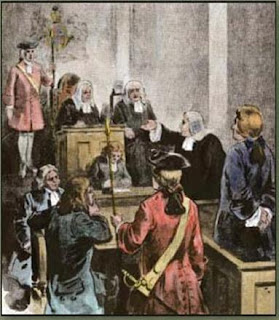 By 1735, Britain had established 13 thriving colonies on the eastern coast of North America. But the colonists were chafing under British rule—they wanted more freedom.
By 1735, Britain had established 13 thriving colonies on the eastern coast of North America. But the colonists were chafing under British rule—they wanted more freedom.
In August, that desire for freedom led to a famous trial. John Peter Zenger, a New York printer, was under arrest for publishing a newspaper that condemned the colony’s British governor as a tyrant. There was no freedom of the press in colonial America, and the judges at Zenger’s trial were friends of the governor. The printer’s case seemed hopeless. Yet Zenger’s lawyer, Andrew Hamilton, refused to give up.
Hamilton believed that a person should not be convicted for writing the truth. But the judges didn’t care whether Zenger’s comments about the government nor were true or not. Under colonial law, that made no difference. So Hamilton turned directly to the jury. He told them that the question they had to decide was “not the cause of the poor printer,” but “the best cause…the cause of Liberty.” The jury acquitted Zenger, agreeing with Hamilton that Americans had “the liberty of exposing and opposing arbitrary power…by speaking and writing the truth.”

